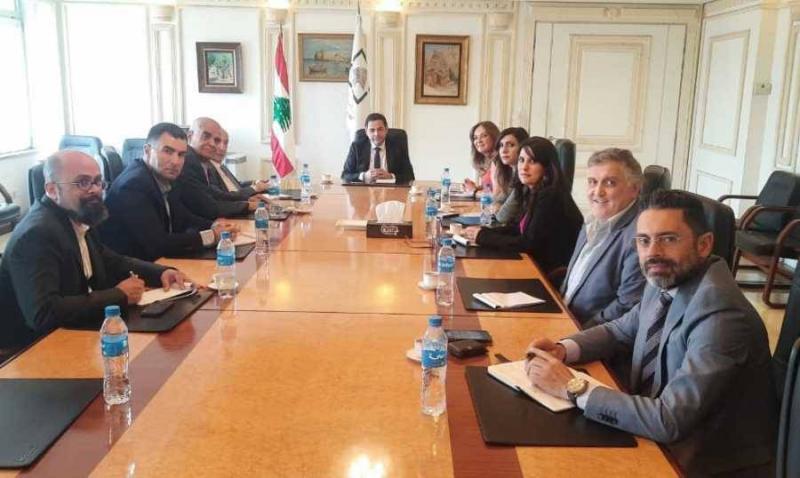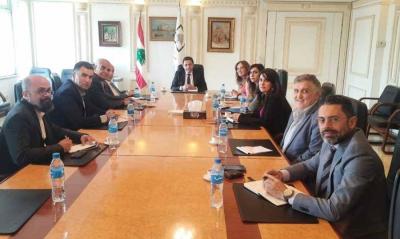Deputy Governor of the Central Bank of Lebanon, Wassim Mansouri, emphasized the "necessity of establishing the foundations for restructuring the banking sector, as economic revival cannot occur without a sound banking sector." He pointed out that "achieving this does not solely fall on the Central Bank, but the state must enact the necessary laws."
Mansouri welcomed a delegation from the Economic Journalists Association led by its President Sabine Owais, including Vice Presidents Bahij Abi Ghanem and Basil Khattib, Treasurer Pierre Saad, Omar Rassi, Patricia Jalad, Nadine Shalhoub, Ramzi Mansour, and Philippe Haj Botros.
Mansouri began the meeting with a statement confirming that the central bank is the institution relied upon for economic revival. He explained the outcomes of his visit to Washington, which facilitated relationships with the World Bank, the International Monetary Fund, and, specifically, the U.S. Treasury, based on mutual understanding to preserve Lebanon's financial situation.
He announced that the central bank has complied with all the IMF's requests, primarily: stopping financing for the state, unifying the exchange rate, ensuring monetary stability, in addition to updating all policies and procedures and implementing good governance in collaboration with the IMF. He revealed that there is a focus on risk management, tightening accountability, and revising the accounting system, meaning modernization and development of the Central Bank.
Regarding the relationship with banks, Mansouri highlighted the "necessity of establishing the foundations for restructuring the banking sector as economic revival cannot take place without a sound banking sector." He emphasized that "achieving this is not the responsibility of the Central Bank; the state must enact the necessary laws," considering that there are four foundations to build upon: accountability in the judiciary, returning depositors' funds through a clear plan with lifting banking secrecy, building the economy through a sound banking sector, and restructuring state institutions to accomplish the required reforms.
He stressed that he would not allow any political influences to back the decisions of the Central Bank, commending the employees he collaborates with at the Central Bank for their high competencies and expertise. He confirmed that the delay of some banks in implementing Circular No. 166 might be due to unresolved requests, urging citizens to report any delays for resolution. Regarding the continued use of an exchange rate of 15,000 Lebanese pounds in banks, Mansouri stated that the central bank has no relation to this rate after officially announcing the exchange rate across all its platforms and transactions.
Owais expressed gratitude to Mansouri for allowing a constructive discussion on economic, financial, and monetary challenges, urging the Central Bank to exert more pressure for the approval of reform laws aimed at revitalizing the banking sector, paving the way for the return of deposits to their owners in light of the political authorities' failure to fulfill their obligations. A dialogue with the governor then ensued, where he answered colleagues' questions.




